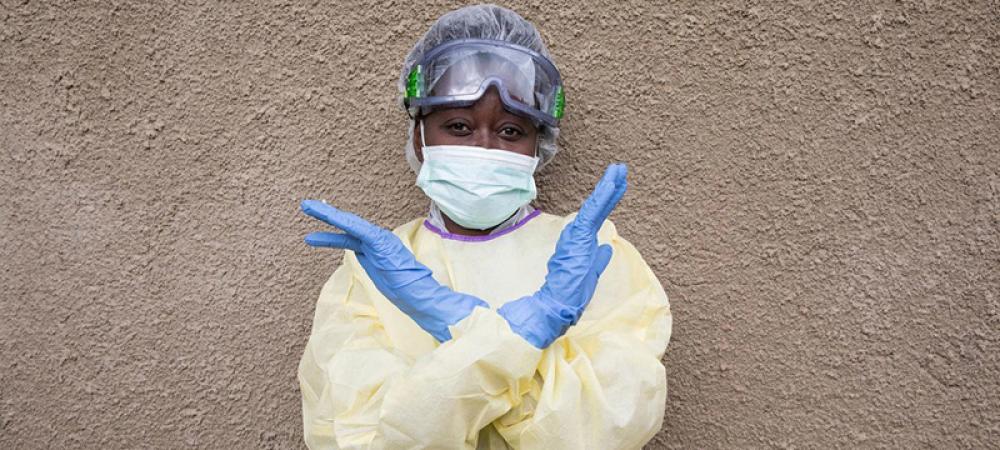Just Earth News | @justearthnews | 14 Oct 2022, 06:28 am Print
 Ebola
Ebola Image: UN Photo/Martine Perret
New York: The World Health Organization (WHO) continues to support Uganda as the Government there responds to a deadly Ebola outbreak, agency chief Tedros Adhanom Ghebreyesus said on Wednesday, in his weekly press conference on global health challenges.
So far, 39 people have died, he reported. Overall, there have been 64 confirmed cases, and 20 probable cases, while 14 people have recovered from the disease.
Authorities are conducting active follow-up of more than 660 contacts.
“Our primary focus now is to support the Government of Uganda to rapidly control and contain this outbreak, to stop it spreading to neighbouring districts, and neighbouring countries,” said Tedros, speaking in Geneva.
Cholera in Haiti
WHO is also working with the health ministry and partners in Haiti to coordinate response to the cholera outbreak there, in the capital, Port-au-Prince, which emerged earlier this month.
Sixteen people have died, and there were 224 suspected cases as of last Saturday, according to the authorities. A quarter of suspected cases are among children under five.
“The situation is evolving rapidly, and it is possible that earlier or additional cases have not been detected,” Tedros told journalists.
Teams are working in areas such as surveillance, case management, water and sanitation, vaccination and community engagement.
Fuel crisis hits healthcare
This latest cholera outbreak is occurring amid mounting insecurity and an economic crisis.
Last month, gangs blocked access to the main fuel terminal in the capital city, which has caused major gas and fuel shortages that are also affecting healthcare services.
Tedros reported that surveillance is being carried out under extremely difficult circumstances.
“The affected areas are very insecure, and controlled by gangs, which makes it very difficult to collect samples, and delays laboratory confirmation of cases and deaths,” he said.
“In addition, fuel shortages are making it harder for health workers to get to work, causing health facilities to close and disrupting access to health services for people who live in some of the most deprived communities.”
Meanwhile, WHO continues to appeal for greater international support for Pakistan, in the wake of the devastating flooding brought on by monsoon rains.
Tedros recalled his recent warning that many more could die from disease than from the disaster.
“There is now a malaria outbreak in 32 districts, while the incidence of cholera, dengue, measles and diphtheria is also increasing in flood-affected districts. We expect the situation to continue to deteriorate,” he said.
On the global Monkeypox outbreak, declared an international public health emergency by WHO, 70,000 cases have now been reported, with 26 deaths.
Cases continue to decline, but 21 countries in the past week, have reported an increase in cases, mostly in the Americas – which accounted for almost 90 per cent of all cases reported in the past 7 days.
“Once again, we caution that a declining outbreak can be the most dangerous outbreak, because it can tempt us to think that the crisis is over, and to let down our guard”, said the WHO chief. “That’s not what WHO is doing. We are continuing to work with countries around the world to increase their testing capacity, and to monitor trends in the outbreak.”
- Alarming projection: Global breast cancer cases could cross 3.5 million by 2050, shows study
- Exam stress to emotional distress: Study reveals the dark side of academic pressure
- Vegetarian diet linked to lower risk of five major cancers, study finds
- Ukraine’s health system under fire: Attacks spike 20% in 2025, WHO warns
- A dog’s loving lick turned deadly — She woke up without her limbs





-1763561110.jpg)
